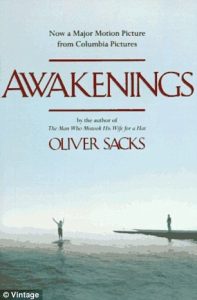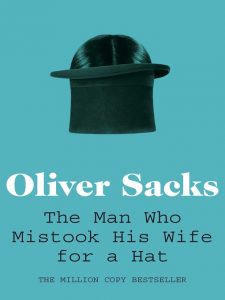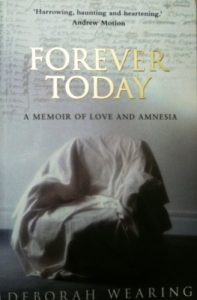 A memoir of someone with dementia will describe a person, and a wider family, and the memories that are lost. Where Memories Go certainly does that, and what a person, what a family, and what memories. Mamie Magnusson came from a working class Glaswegian background, made a glamorous and talented way through Scottish journalism, and married the patrician Magnus Magnusson. She carried on writing while raising a family and supporting Magnus in his media and writing career. And then in her older years she experienced the confusing losses of dementia. Her eldest daughter Sally has written a wonderful memoir of … Read more...
A memoir of someone with dementia will describe a person, and a wider family, and the memories that are lost. Where Memories Go certainly does that, and what a person, what a family, and what memories. Mamie Magnusson came from a working class Glaswegian background, made a glamorous and talented way through Scottish journalism, and married the patrician Magnus Magnusson. She carried on writing while raising a family and supporting Magnus in his media and writing career. And then in her older years she experienced the confusing losses of dementia. Her eldest daughter Sally has written a wonderful memoir of … Read more...
Tag: memory
John Bayley – Iris
 If anyone believes that intellectual brilliance is proof against developing dementia, then consider the case of Iris Murdoch. Her complex and enthralling novels are those of a philosopher, building worlds in which ideas are carefully explored: in particular they consider how existentialist thought can form a coherent foundation for decisions and action. She was a very precise user of language. She was made a Dame of the British Empire for her contributions to English literature. And then she developed Alzheimer’s disease, and progressively lost her language. At a writers’ conference in Bangkok in 1994, she suddenly found herself unaccustomedly unable … Read more...
If anyone believes that intellectual brilliance is proof against developing dementia, then consider the case of Iris Murdoch. Her complex and enthralling novels are those of a philosopher, building worlds in which ideas are carefully explored: in particular they consider how existentialist thought can form a coherent foundation for decisions and action. She was a very precise user of language. She was made a Dame of the British Empire for her contributions to English literature. And then she developed Alzheimer’s disease, and progressively lost her language. At a writers’ conference in Bangkok in 1994, she suddenly found herself unaccustomedly unable … Read more...
Barbara Lipska – The Neuroscientist Who Lost Her Mind
 Barbara Lipska’s experience presents a problem, and her memoir attempts a partial solution. For how can you remember what it is like to be not yourself? If you are not there to associate events and their emotional import, how can you recollect and describe them?
Barbara Lipska’s experience presents a problem, and her memoir attempts a partial solution. For how can you remember what it is like to be not yourself? If you are not there to associate events and their emotional import, how can you recollect and describe them?
Lipska became ‘mad’ (her description) as a consequence of metastatic tumours growing in her brain secondary to a melanoma. She exhibited many of the signs of schizophrenia and dementia, conditions she had spent her career as a neuroscientist trying to understand. And yet, during the period she experienced these signs, she lost the very part … Read more...
Wendy Mitchell – Somebody I Used To Know
 This is a fantastic book. Somebody I used to know might be called a memoir by someone whose memory is deserting her. It is a priceless exploration of a world that might become relevant to any of us. It describes Wendy Mitchell’s life and experiences, with conversations between her old and new selves. It teems with tips on how to live with dementia, from the point of view of someone who is living with dementia. There are moving descriptions of the areas of difficulty, including talks with Wendy’s daughters about care and end-of-life decisions necessary for before they can sign … Read more...
This is a fantastic book. Somebody I used to know might be called a memoir by someone whose memory is deserting her. It is a priceless exploration of a world that might become relevant to any of us. It describes Wendy Mitchell’s life and experiences, with conversations between her old and new selves. It teems with tips on how to live with dementia, from the point of view of someone who is living with dementia. There are moving descriptions of the areas of difficulty, including talks with Wendy’s daughters about care and end-of-life decisions necessary for before they can sign … Read more...
Oliver Sacks – Awakenings
 This is an early classic of the ‘illness narrative’ literature, albeit one written by a clinician. Twenty detailed case studies form the central section of this book, describing the use in the late 1960s of a new miracle drug for people with post-encephalitic Parkinsonism. But these are not dry clinical case studies in which signs and symptoms are listed and described, and then synthesised to form predicted rules of human response to a drug. Instead, the case studies are rich descriptions of historical people, whose words, individuality and priorities colour the pages. Sacks paints the manifold presentations of the ‘sleepy … Read more...
This is an early classic of the ‘illness narrative’ literature, albeit one written by a clinician. Twenty detailed case studies form the central section of this book, describing the use in the late 1960s of a new miracle drug for people with post-encephalitic Parkinsonism. But these are not dry clinical case studies in which signs and symptoms are listed and described, and then synthesised to form predicted rules of human response to a drug. Instead, the case studies are rich descriptions of historical people, whose words, individuality and priorities colour the pages. Sacks paints the manifold presentations of the ‘sleepy … Read more...
Elizabeth Lopatto – This is what a brain injury feels like
Concussion is probably the most common of all neurological conditions, so it makes good sense to include accounts of people’s experiences of concussion and mild traumatic brain injury on this website of illness narratives. Often, people with concussion are the walking wounded, whose illness is invisible, or even masquerading as something socially unacceptable, inebriation. Elizabeth Lopatto has produced a riveting brief account of her brain injury following a cycle accident. Being a science journalist who has previously reported on Chronic Traumatic Encephalopathy (CTE), she has also set her symptoms in the context of repeated concussion in American Football and boxing.… Read more...
Oliver Sacks – The Man Who Mistook His Wife For A Hat
 Oliver Sacks differentiates his vignettes from conventional medical case histories by their engagement with ‘the person, and the experience of the person, as he faces, and struggles to survive, his disease’. This collection of portraits is therefore included in these ‘illness narratives’ for their insights into the personal experience of different conditions. It is for the reader to judge how well Sacks fulfils his undertaking to engage with the individual and enter his experience. When I read these today, I am very aware of Sacks the neurologist, determined to classify exactly, using exactly the correct medical terminology. But perhaps his … Read more...
Oliver Sacks differentiates his vignettes from conventional medical case histories by their engagement with ‘the person, and the experience of the person, as he faces, and struggles to survive, his disease’. This collection of portraits is therefore included in these ‘illness narratives’ for their insights into the personal experience of different conditions. It is for the reader to judge how well Sacks fulfils his undertaking to engage with the individual and enter his experience. When I read these today, I am very aware of Sacks the neurologist, determined to classify exactly, using exactly the correct medical terminology. But perhaps his … Read more...
Deborah Wearing – Forever Today
 How far can you have a personality without memory of your own story? Today, as our society includes ever increasing numbers of people with dementia, that question is asked more and more often. Clive Wearing is at the extreme end of those with no memory, although in his case the loss of memory followed an encephalitis. In Forever Today, his wife Deborah describes Clive and his daily struggles with encountering the world and himself in it. It is poignant, upsetting, at times comedic, and profoundly thought-provoking about what things come together to make us human. Various clips and documentaries … Read more...
How far can you have a personality without memory of your own story? Today, as our society includes ever increasing numbers of people with dementia, that question is asked more and more often. Clive Wearing is at the extreme end of those with no memory, although in his case the loss of memory followed an encephalitis. In Forever Today, his wife Deborah describes Clive and his daily struggles with encountering the world and himself in it. It is poignant, upsetting, at times comedic, and profoundly thought-provoking about what things come together to make us human. Various clips and documentaries … Read more...